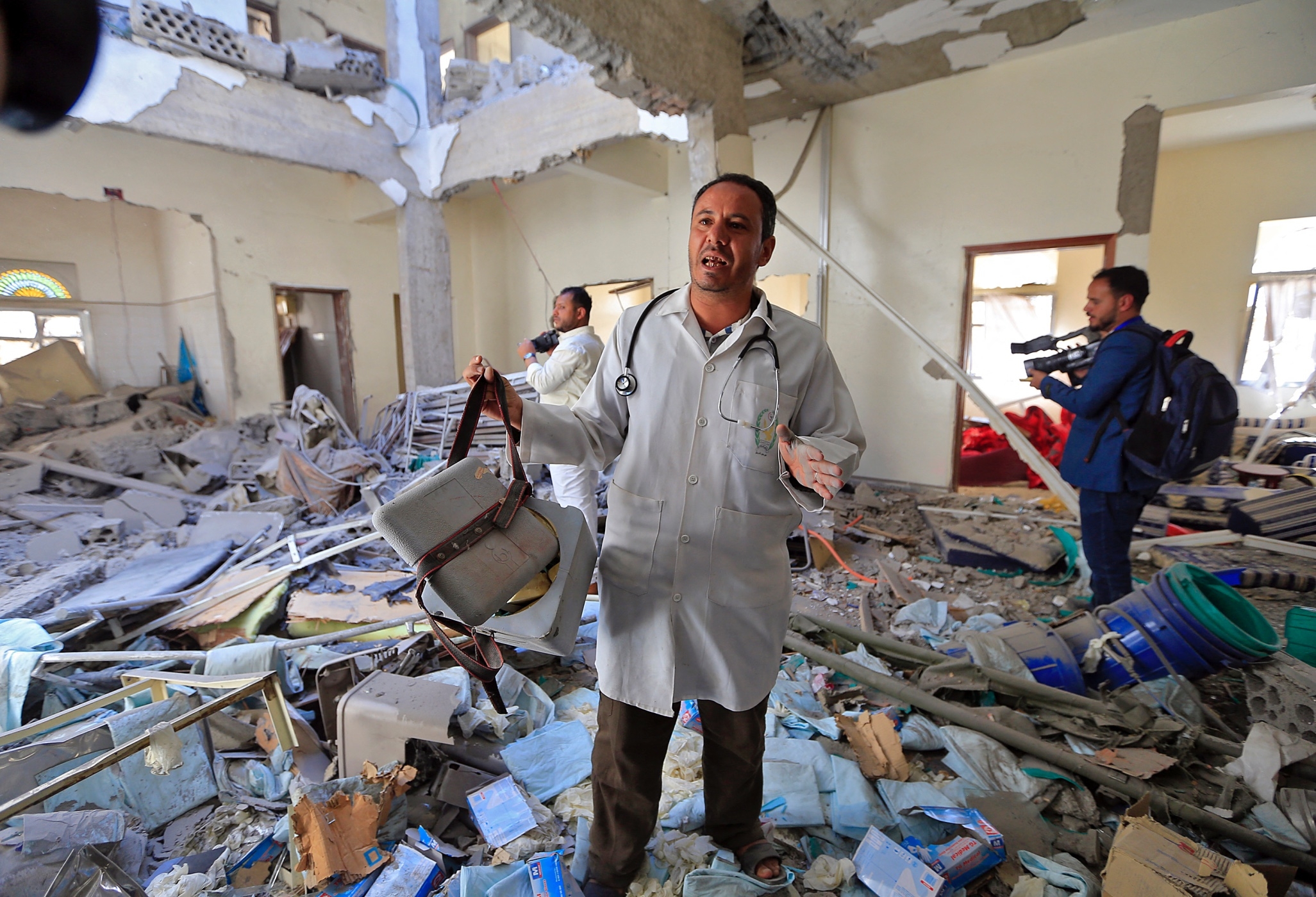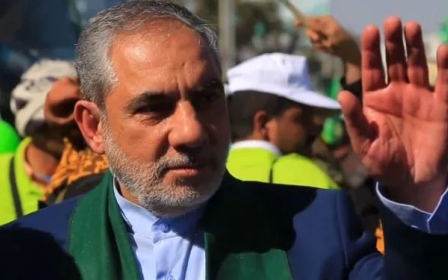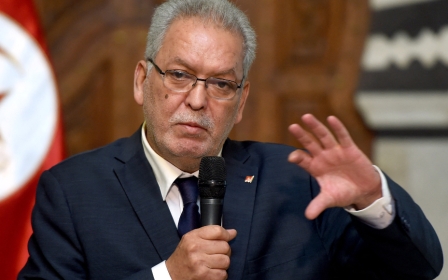Yemen: Aid groups urge reopening of bombed Sanaa airport

International organisations called on Monday for the reopening of Sanaa airport, an important access point for humanitarian flights carrying aid to the war-torn country that has been shut for three days and bombed overnight.
Sanaa and its airport are held by the Houthi movement, which for seven years has been at war against a Saudi-led coalition fighting on behalf of Yemen's internationally recognised government.
The coalition said on Monday it carried "a limited number of precision strikes" on Houthi military targets in Sanaa airport after asking civilians to evacuate. Houthi authorities had closed the airport on Sunday before the air strikes began.
The closure means that essential humanitarian aid such as food and medicine - part of which enters Yemen through the airport - have not been able to reach the country. More than half of Yemenis are reliant on some form of humanitarian aid.
'The impact of the decision to close the airport on the lives of Yemenis has been severe in recent years'
- Jasmin Lavoie, Norwegian Refugee Council
“The impact of the decision to close the airport on the lives of Yemenis has been severe in recent years,” Jasmin Lavoie from the Norwegian Refugee Council told Middle East Eye.
New MEE newsletter: Jerusalem Dispatch
Sign up to get the latest insights and analysis on Israel-Palestine, alongside Turkey Unpacked and other MEE newsletters
Juliette Touma, from the United Nations' children's agency Unicef, said Sanaa airport was vital for importing vaccines.
“Through Sanaa airport we get life-saving assistance to children, including routine vaccines against childhood diseases, in addition to other assistance,” she told Middle East Eye.
It is unclear when humanitarian flights will resume, as authorities are still investigating how the air strikes affected the infrastructure.
“A UN team is on the ground at Sanaa airport to verify the extent of any damage,” a World Food Programme spokesperson told MEE.
Khaled al-Shayef, director-general of Sanaa airport, told AFP that the "health quarantine quarters and warehouses to store export and import goods were destroyed".
AFP also reported that the airport is no longer able to receive aircraft operated by the UN or humanitarian organisations.
While authorities have been trying to measure the impact of the air strikes on aid flows into Yemen, international organisations have called for it to open immediately.
“We want the airport to reopen for humanitarian and commercial purpose,” said the NRC's Lavoie.
“The only way to leave the country is to drive for 15 to 20 hours, on dangerous roads full of soldiers belonging to various groups - it’s nonsense.”
"It is vitally important that the airport is re-opened as quickly as possible, and that the two sides commit to keeping the airport out of the conflict in the future,” Ahmed Mahat, Medecins Sans Frontieres' head of mission in Yemen, told MEE.
The Saudi-led coalition maintains a blockade on Yemen, banning commercial flights to Sanaa since 2016 and only allowing aircraft through for essential flights carrying humanitarian aid and occasionally people needing life-saving care.
“Yemenis have died from critical health conditions for which they were seeking international medical treatment but were unable to do so due to the airport closure [of commercial flights],” said Lavoie.
The NRC called for resuming commercial flights at the airport this August, marking five years after the ban came into place.
"This is not the first time that the airport has been subject to air strikes, nor to closures imposed by one or other of the parties to the war in Yemen," said Mahat.
"Each time that the airport is closed, it has a real impact on MSF and other humanitarian actors’ ability to run our operations ... causing consequences for many Yemenis relying on humanitarian aid."
Mounting attacks
The closure of the airport and Monday's strikes come a day after the Saudi-led coalition said it destroyed a drone launched from the Yemeni airport and aimed at civilians at Saudi Arabia's King Abdullah airport in Jizan, near the border with Yemen.
"The operation was mounted in response to the threat and use of airport infrastructure to carry out cross-border attacks," according to the official Saudi Press Agency.
The coalition also said on Sunday that it conducted a military operation in Sanaa to destroy workshops and warehouses for drones and other weapons, urging civilians to avoid the area.
Saudi Arabia and its allies, most prominently the United Arab Emirates, intervened in Yemen in 2015 after the Iran-aligned Houthi movement ousted the internationally recognised government of President Abd Rabbuh Mansour Hadi from Sanaa. The coalition immediately began a bombing campaign aimed at rolling back Houthi gains.
In recent years, Houthi forces have stepped up drone and missile attacks on Saudi Arabia.
A UN Development Programme report last month said the war will have claimed 377,000 lives by the end of the year, through both direct and indirect impacts.
For months, the two sides have been fiercely fighting around the city of Marib, east of Sanaa, where Houthi forces are seeking to take over key Yemeni government strongholds.
Still, while the Houthis have made major advances during the past couple of months, recent Saudi-led air strikes have so far managed to stem the Houthi advance and given hope to pro-government forces.
Middle East Eye delivers independent and unrivalled coverage and analysis of the Middle East, North Africa and beyond. To learn more about republishing this content and the associated fees, please fill out this form. More about MEE can be found here.






